Netflix's hit political drama/thriller/suspense House of Cards (2013-2018) delivered all the elements of a fantastic show: chilling, eloquent, witty dialogue, brilliant backdrops of D.C., South Carolina, the woods, and other places; story and plot lines that hooked, impeccable directing, acting, and lighting; the list truly goes on and on.
One of the pleasures of the show, one that really cataloged protagonist (and antagonist) Frank Underwood's thoughts, behaviors, beliefs, and actions, were his asides to the camera. There is no better way for an audience to get close to, draw from, and debate a character than with some dramatic irony -- and at its finest in the Netflix hit.
10 "Presidents who obsess over history obsess about their place in it instead of forging it."
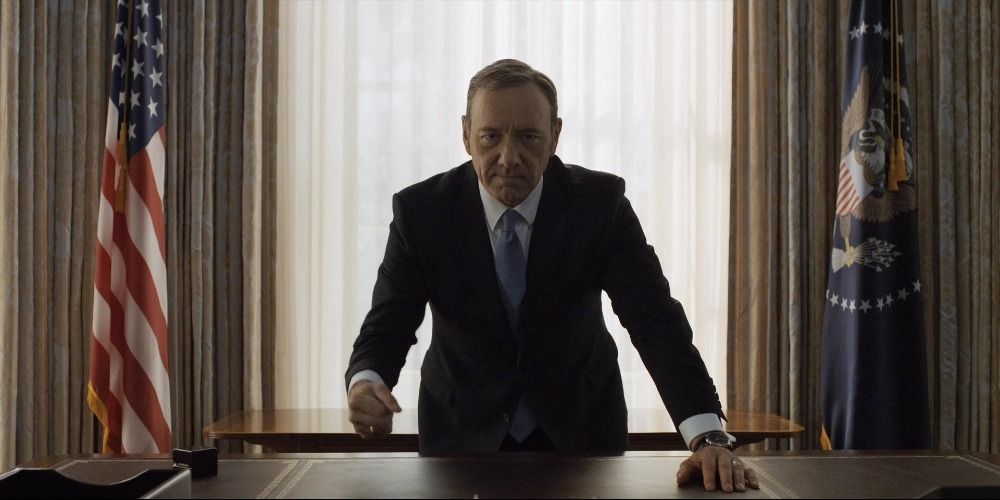
This aside highlights just one of Frank's convictions: he is not going to think in the 'traditional', 'old-fashioned' ways of former presidents; rather than trying to fit into the mold of what presidential legacies look like, he will carve out his place in the 21st-century political zeitgeist and remain memorable in the way(s) that only Frank can, custom(s) be dammed.
9 "I've always loathed the necessity of sleep. Like death, it puts even the most powerful of men on their backs."
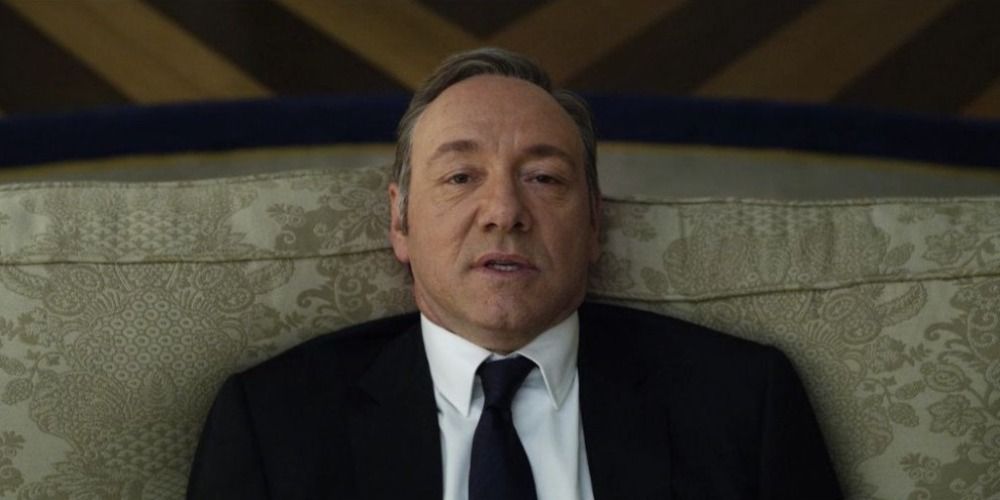
Another classic aside of Frank's shows his disdain for slowing down, lest he be behind in climbing up the political ladder to complete prestige, power, and wealth. Frank is a well-oiled machine, even for his age and health: sleep, like death, is no respite or reprieve, but a nuisance and inconvenience that only gets in the way of their life plans: well-laid paths to total governmental domination.
8 "If you don't like how the table is set, turn the table over."
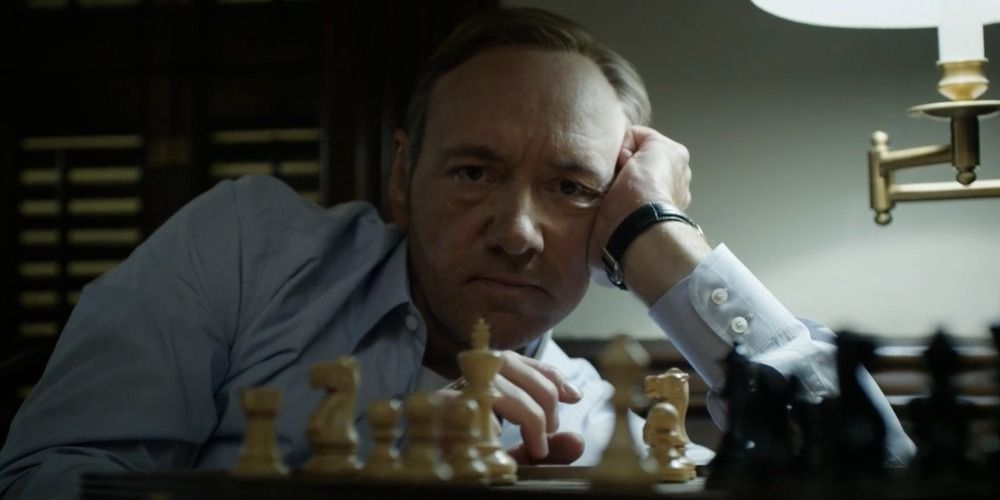
Another of Frank's asides that only solidifies his character: if he isn't satisfied with the way things are in his position, his cabinet, his administration, his chambers; anything else to do with his political life, he will make it right in the only way that he sees fit. Rather than act with poise and rationality at the table dissatisfied table, he is going to act the way Frank and make a whole theatrical show of it.
7 "There is no solace above or below . . . I pray to myself, for myself."
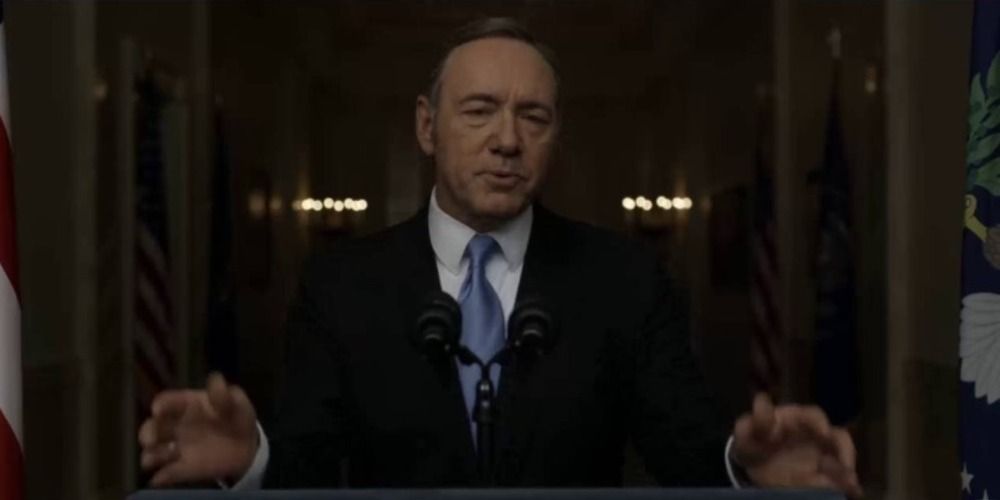
This nihilistic, certainly a-religious aside from Frank comes in a moment of deep retrospect on some of the world's most pressing philosophical questions and deep, personal beliefs -- is there a God, a God to answer my prayers? Is there any measure of peace or comfort anywhere?
In short, says Frank, no. He is his god, a man-made, self-appointed being whose only concern is himself.
6 "There can be no false steps now. The higher up the mountain, the more treacherous the path."
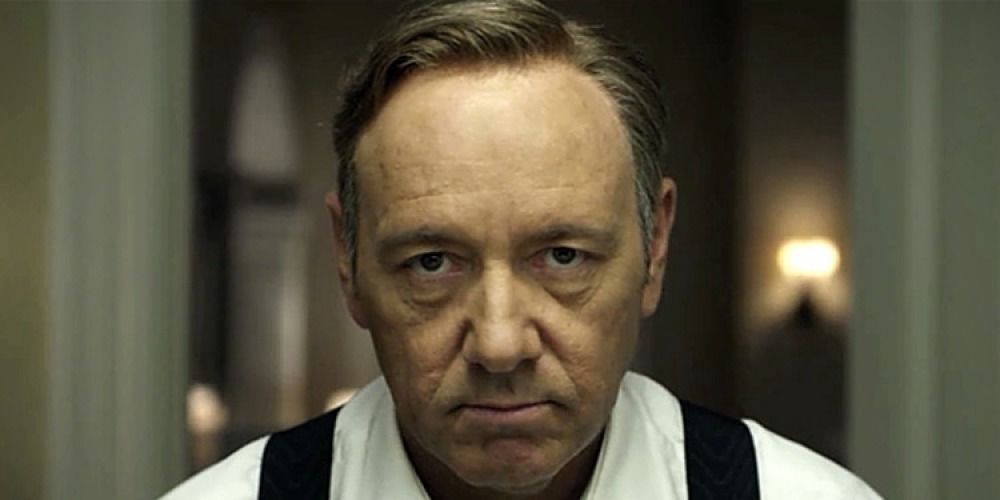
As Frank begins his ascent into being a political powerhouse -- and his descent into murderous paranoia -- he begins to realize that still, too many mistakes have been made, however small. On. a narrow, slippery slope such as this and at such precarious 'heights', no false steps; no mishaps can be made. Only when Frank reaches his peak will he be able to relax...maybe.
5 "Power is the old stone building that stands for centuries."
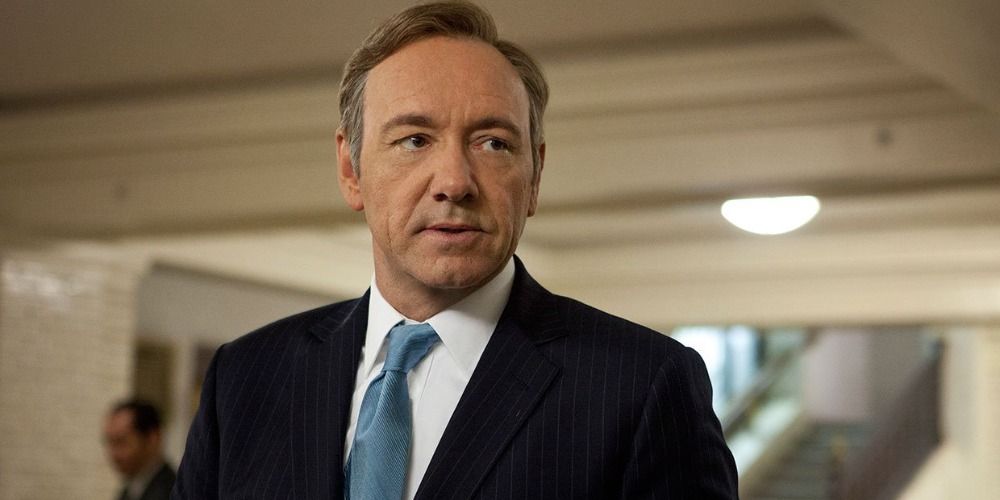
"Money is the Mc-mansion in Sarasota that starts falling apart after 10 years. Power is the old stone building that stands for centuries. I cannot respect someone who doesn't see the difference."
In this aside, Frank is -- and has before in other moments in House of Cards -- loathing the idea of money. Money is paper-thin, its value increases or decreases depending on how we denote it at the time, and it's easily stolen. Power, on the other hand, is stronger, denser, heavier, less likely to vanish overnight, and can be everlasting, even when something (or someone) is long gone. Frank knows this and does not respect anyone who can't make such an obvious, discernible distinction.
4 "Shake with your right hand but hold a rock in your left."
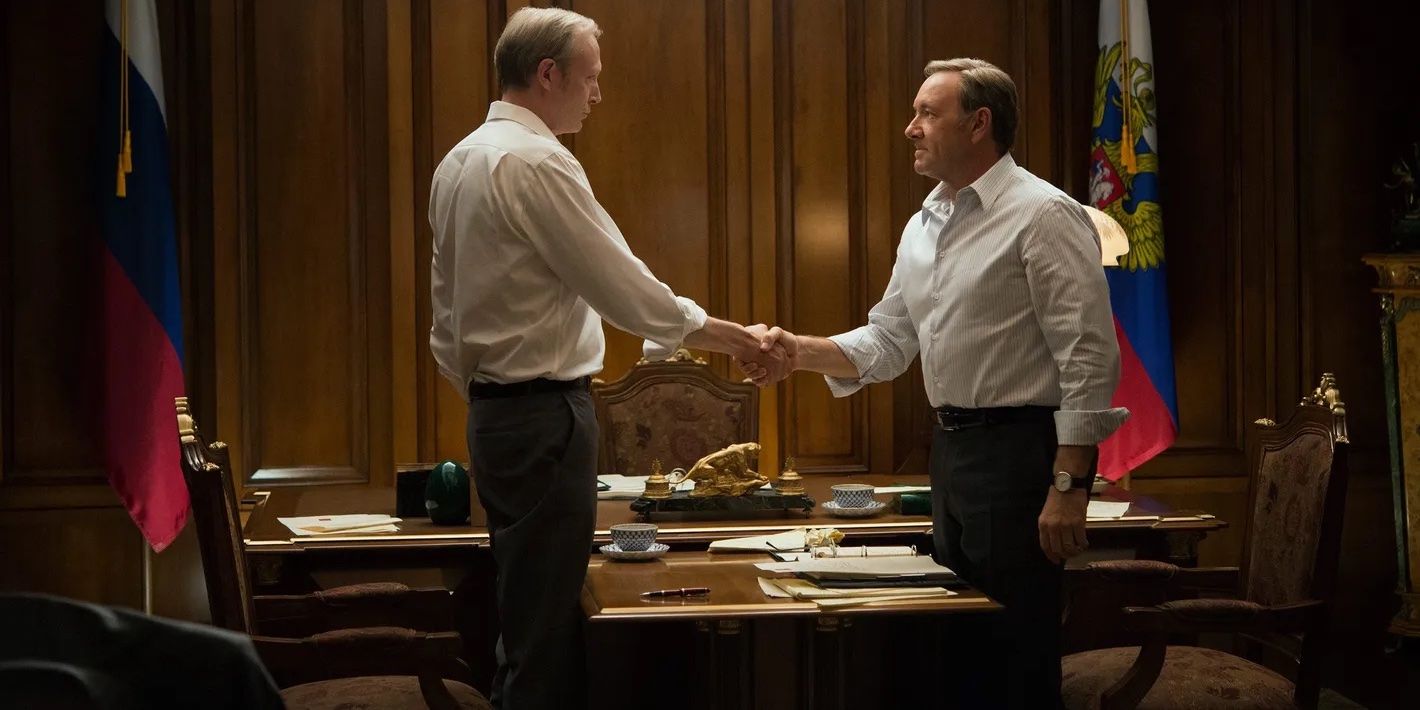
In this aside to viewers, Frank is giving fans one of his more violent -- but effective -- bits of insightful advice. He encourages a veneer of compromise and tact on the one hand, but to remain vigilant and strong on the other. In essence, Frank wants to be both a team player and a threat and suggests that audiences be as well, keeping the rock a secret while acting as amicable as possible on the face.
3 "The road to power is paved with hypocrisy and casualties. Never regret."
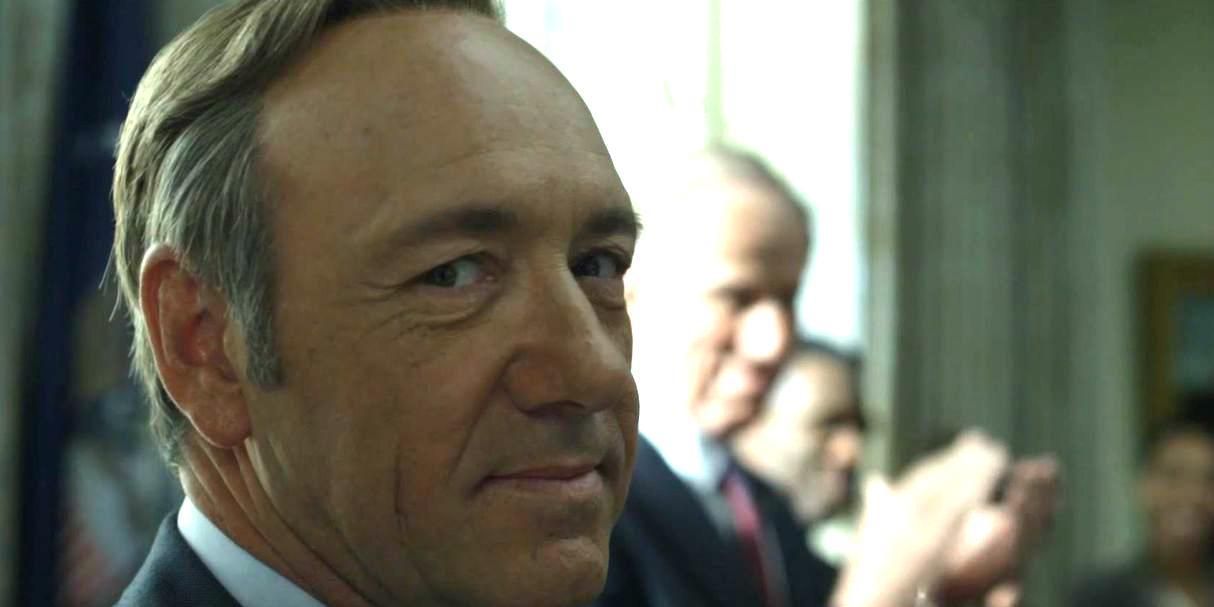
Again, Frank's aside is letting fans in on a little secret: when someone decides to pursue a life of power, especially, in this case, political prestige, it will be a journey full of treachery of all kinds: hypocrisy, harm, and a slew of other things (he doesn't mention, but implies), but there can be no room for regret, mourning, or a change-of-heart.
2 "Democracy is so overrated."
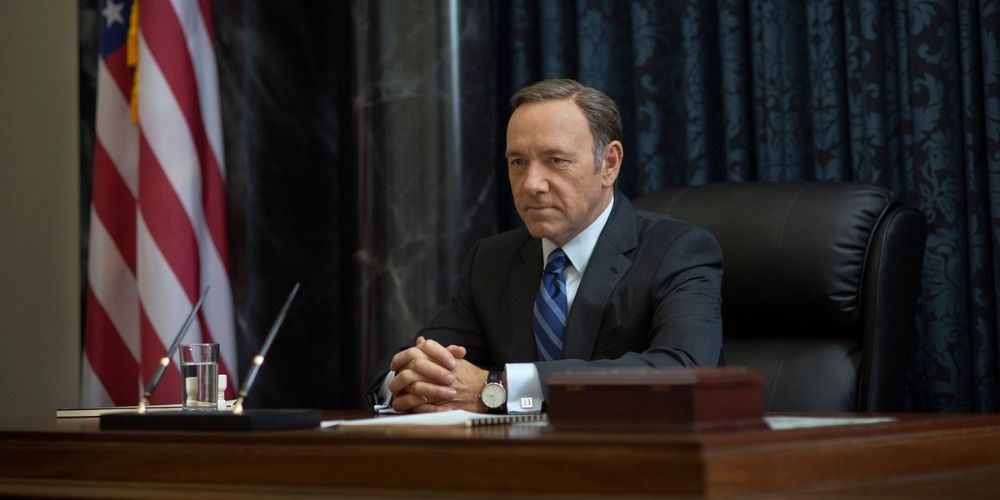
Spectators of House of Cards know early in the show that if Frank has his way, America would not be the free, democratic country it is today; rather, it would be a total dictatorship.
Frank loathes the messiness that comes with so much government overreach, interference, and watchdog activity with administration, cabinets, departments, advisors, and so on. In his idyllic world, Frank would be to only one with the power to decide, execute, and enforce.
1 "There are two kinds of pain."
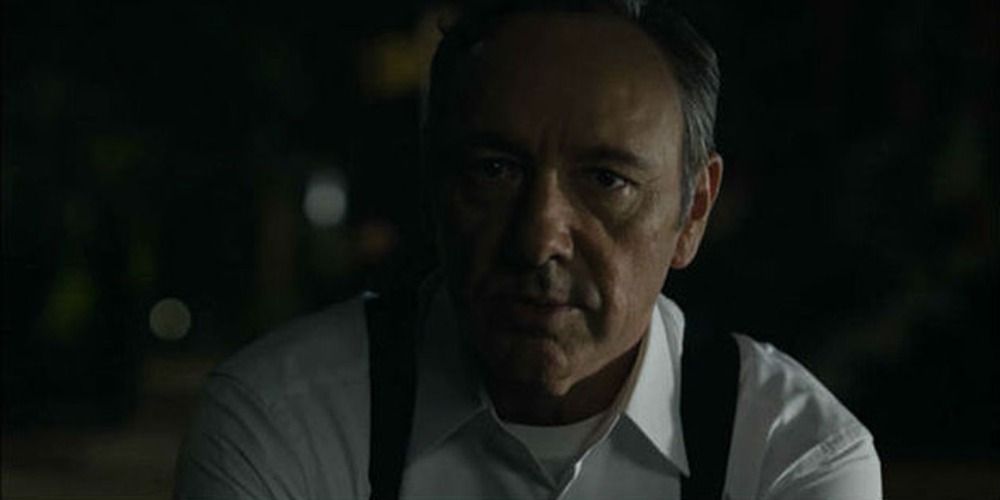
"There are two kinds of pain. Good pain -- the sort...that motivates...makes you strong. Then there's bad pain...useless, the sort of pain that's only suffering. I welcome the former. I have no patience for the latter."
In this final aside, introduced to viewers within seconds of the very first episode, lets lookers-on glimpse into what Frank is going to offer them and the underlying theme of the events that are going to unfold: there will always be a thread, an undercurrent, of pain that's inflicted as he makes his way to the presidency. It will take many forms to his victims, but it's all the same -- Frank will dole out the pain that motivates him and makes him stronger, not weaker, and with no suffering.
from ScreenRant - Feed https://ift.tt/34fkoVu





No comments: